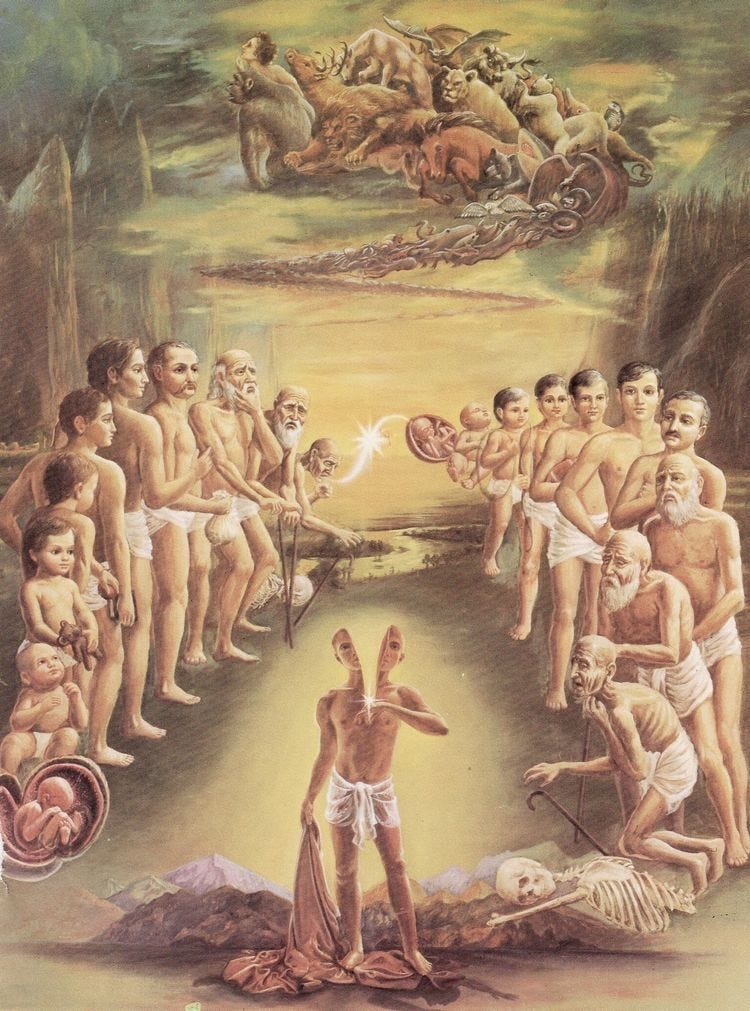reader q&a: death, progressive mormonism, and maintaining relationships after leaving
The post in which I use reader-submitted questions as a jumping off point to talk about my emo shit.
Hello again, it’s been a minute. I have been so encouraged by the loving support I’ve received from friends (old and new) and family members who have read my memoir series and shared kind words. It means the world to be able to share delicate parts of myself and have those parts witnessed and appreciated.
An update on the project: I will publish future installments of my Mormon memoir series, but it’s currently on hold. I want the final parts to be authentic and something I can be proud of- right now I’m just not in the season of life that lends itself well to memoir writing.
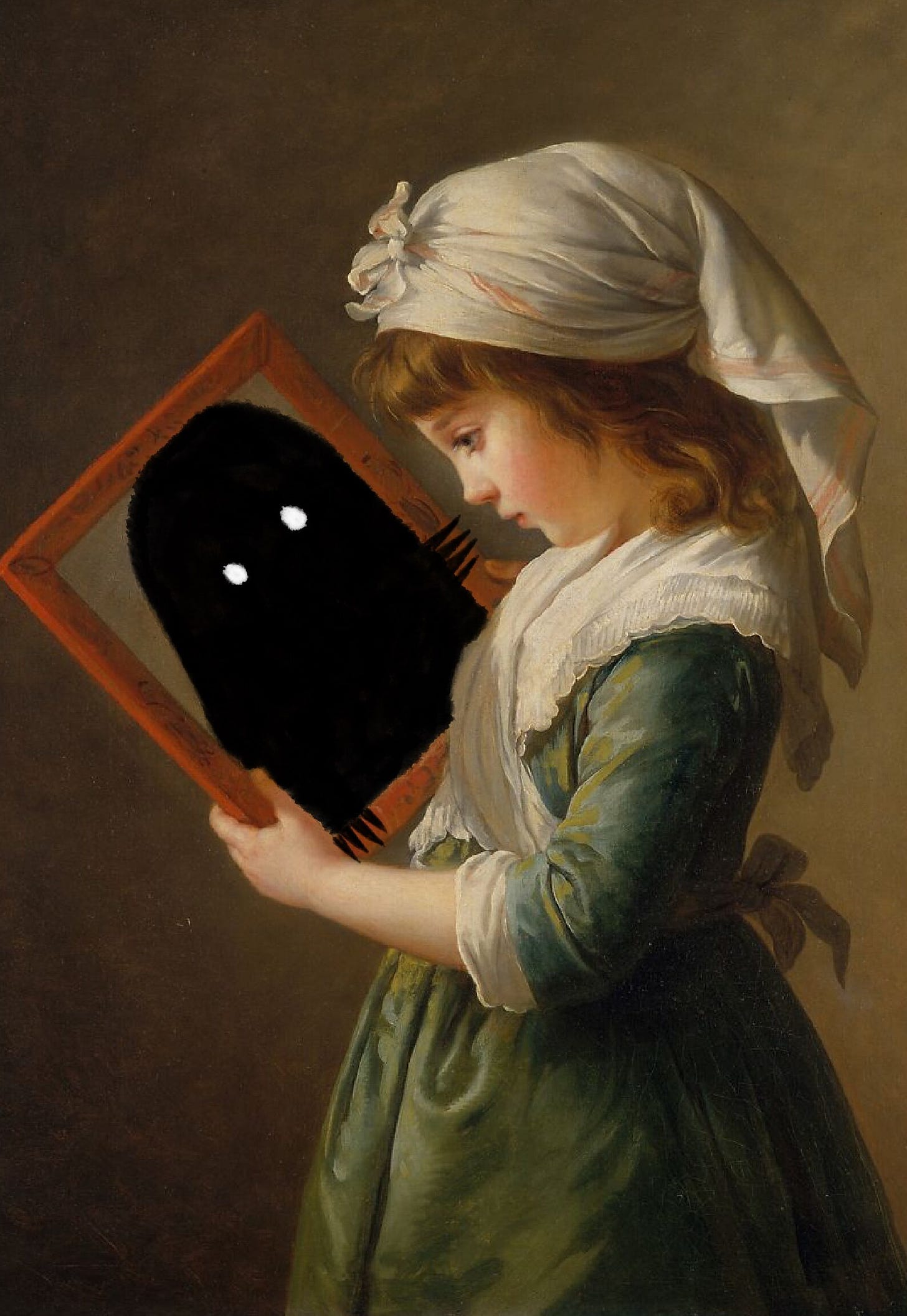
A little while ago I posted a link on my socials requesting anonymous questions about my Mormon experience. I didn’t receive very many questions (cue Charlie Brown “Christmas Time Is Here”) but with humility and grace I turned your pennies into quarters.
How has your religious trauma affected your views on death and the afterlife?
I didn’t truly believe in death when I was a Mormon. Yes, I knew all bodies would eventually get too old, too sick, or too injured and cease to function. But to me, life didn’t really exist in the body. Life existed in the soul, and I’m told souls are eternal. I spent a lot of time doing temple work for dead people and contemplating my own existence outside of the “mortal realm”. I had little experience with death outside of the passing of great grandparents who lived long, faithful lives. Still, I carried a normal fear of losing someone I loved to a premature death.
Sometimes I’d have nightmares in which someone I love dies unexpectedly and I’d wake up in a state of stress, feeling sick and wronged. My faithful response to these “bad” feelings was, of course, to turn to a dog-eared page in my Book of Mormon:
Now, there is a death which is called a temporal death; and the death of Christ shall loose the bands of this temporal death, that all shall be raised from this temporal death.
The spirit and the body shall be reunited again in its perfect form; both limb and joint shall be restored to its proper frame, even as we now are at this time;
(Alma 11:42-43)
It comforted me to know that everything would be okay in the next life even if I had to experience death and suffering in this one. “The next life” was a neat little concept, a trick up my sleeve, to put anxieties to rest. With ease I could escape into fantasies of a promised state of paradise lovingly curated by the divine for my good, obedient soul. The fantasies calmed me but they also held me captive. You see, I rarely had to think my own thoughts or feel my own feelings. Everything was so clearly laid out for me! I was ungrounded, floating through life in a passive state, believing that all problems and hardships would simply “work themselves out” after I died. Oh sweet death, my beloved gift.
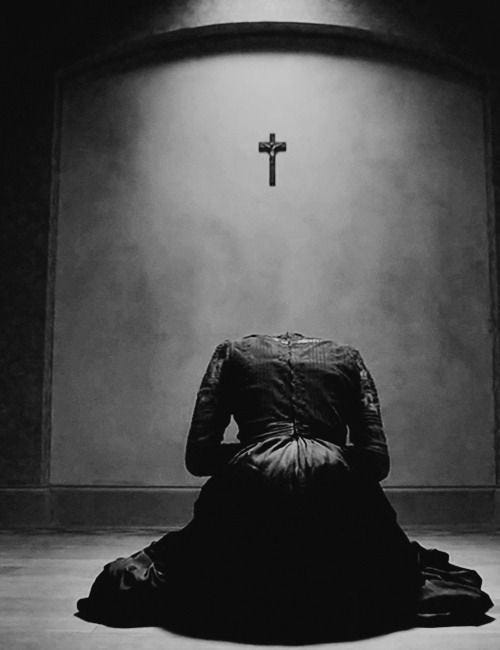
Disturbing, no?
When I left the Mormon church five and a half years ago- a slow, gradual disillusionment until suddenly all at once- I just as suddenly accepted the concept of heaven and hell as incongruent with scientific evidence.
I find that a lot of conversations about belief in an afterlife kind of end there: Do you believe in it? Yes or no, and why or why not?
But for me, losing belief in an afterlife was more than a new answer to an old question. It was/is a rich life experience. What does it look like for someone to grapple with their own mortality after believing so whole-heartedly that she would continue on forever?
For me, it was liberating. I disavowed allegiance to an afterlife! No longer would I live in fear of judgment day! Hierarchical glory be damned! Those folks could live in their pretend Mormon kingdoms without me, I’d be busy living on a planet bursting with all kinds of stories about life and death, meaning and feeling.
The afterlife was a concept that had been used to control me. Mormon doctrine had so zealously emphasized that my entire human life was a test, a dangerously decisive blip in my eternal existence. It was a fear tactic that worked for a time, keeping me obedient and unquestioning. Rejecting an afterlife was a necessary step for me in taking back my autonomy.
Accepting the impermanence of life and the unknowability of what happens after death is indeed scary, but I find it far less terrifying than allowing my precious human life to be controlled by the threat of an afterlife.
I recognize there was a clouding layer of privilege involved in my quick dismal of the afterlife. You see, I had not yet encountered death. Five and a half years later and I still haven’t, not really. Philosophizing about death is easier when you have not yet had to look it in the eye.
My closest experience to encountering death was when my cat died two and a half years ago. He was my companion, the surest source of joy in my life, my baby. He was a senior kitty when I picked him up from the shelter, already pushing the limits of a terminal diagnosis. We had a year together. Even so, losing him was a gargantuan emotional experience.
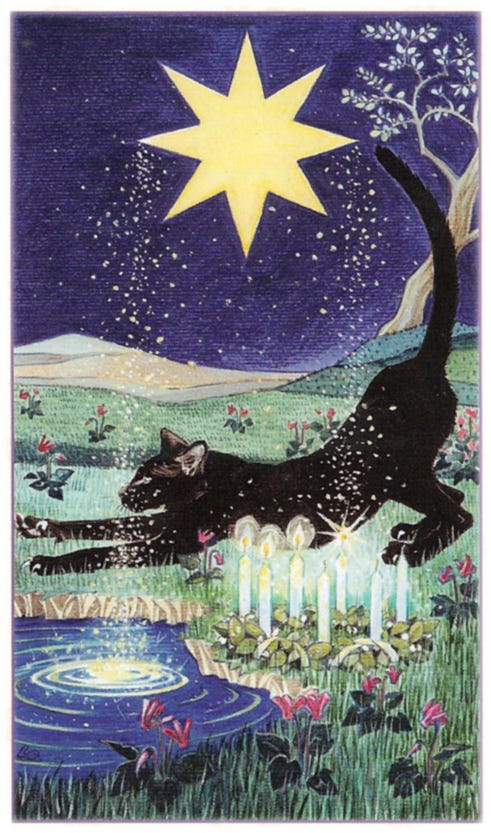
As painful as it was, it was actually one of the most spiritual times of my life. His death took the course of a week and I had the privilege of spending every moment of that period present with him. I was overcome with love for him and in return, a renewed love for myself and life as a whole. After what had felt like a loveless, lonely period of my life, my grief was a visceral teacher and testament to my capacity for love. This sweet little cat put me in touch with deeper meaning and purpose. It really is all about love at the end of the day, isn’t it?
He lives on in my memory and as a tattoo on my left forearm, loved for as long as I’m still breathing. And if the love didn’t stop when his heart did, that’s an afterlife right there.
All that to say, he was a cat. As much as I loved him, his death could never shatter me in the way the death of a close human relationship most certainly would and will. I’ll surely experience it one day, most humans who are lucky to live long enough do.
Grief has been a prominent subject of my curious psyche. Since my religious deconstruction I find myself drawn to movies, books, and music that explore its transformative power. I’ve been so moved by the work of artists who have so darkly and honestly turned their grief into something purposeful and connecting. It makes me feel less scared to face death. I don’t need religion to medicate my fear of death. I need art to help me process it.
My beliefs on the afterlife are quite boring: I don’t necessarily believe in one. My feelings however, are anything but. They are as fluid as flesh and I’m curious to see what my future self would have to say on the matter.
Do you think the church is getting better?
There is an interesting cultural shift happening in Mormonism right now as church doctrine and culture adapt to the more socially conscious ways of the world. I see it on the social media accounts of faithful Mormons I follow: artists use darker shades to depict images of Jesus, families embrace their gay or apostate children, mothers work outside of the home and wear their career like a badge of honor, girls wear sleeveless dresses to prom, women wear shorts in the summer…
It’s fascinating to watch the culture change. Even in my half decade on the other side, the church has morphed into an organization I don’t fully recognize. There is progress, and that’s a good thing, right?
Yeah. The church’s removal of language about modesty, tattoos, and piercings in the “For The Strength of Youth” pamphlet is a small but meaningful victory for girls and women and the bodily autonomy of all members. The removal of language in the sealing ceremony that demanded women obey their husbands is another such victory.
While actual progressive change coming from church headquarters is minuscule, it is seen more distinctly from members on the outskirts of power: namely, women and LGBTQ+ members. I don’t know many of these people on a personal level, but I occasionally internet stalk Progressive Mormon thought leaders out of curiosity. Two that come to mind are Rosie Card (a feminist) and Charlie Bird (a gay man). The power these influencers wield is undeniable, and their large followings are a testament to the collective progressive desires of many modern Mormons. Rosie Card is an open supporter of abortion access and questioning priesthood (male) authority, two positions in direct opposition to church doctrine. Charlie Bird’s feed oscillates between pictures of his fiancé (a man) and written testimony of the church’s truthfulness. His brand explores the ~nuance~ of being a gay man in a religion that dictates his “lifestyle” is a sin. These influencers straddle the line of worship and what would have been considered heresy “back in my day”.
Important to note is that both of these influencers profit from their thought leadership, Charlie as the author of “Expanding the Borders of Zion: A Latter-Day Saint Perspective on LGBTQ Inclusion” and host of the podcast “Questions From the Closet.” Rosie, until quite recently, sold temple dresses. She also sells secular merch.
I can see that a lot of the Mormons who align themselves with these philosophies are intelligent, idealistic, kind, and sensitive. Their softness most surely prevents some harm.
But the system they are upholding is cruel, authoritarian, self-serving, and exploitative. It is beyond redemption because it was never redeemable to begin with. The core structure of the religion lies in its hierarchical, centralized power system of prophets and apostles who claim authority from God. These men repeat themselves over and over again: “homosexual behavior” is unnatural and a sin, positions of authority can only be held by men, and in order to be worthy of saving ordinances you need to pay ten percent of your income to the church.
And oh, the fraud! The Mormon church is hoarding billions of dollars and it spends less than one percent of its wealth on humanitarian aid. To hold on to that many resources while so many in the world are suffering from problems that could be alleviated by money is morally wrong. The church demands from its members, even its struggling and destitute, to pay into the church for salvation. They habitually demand money through emotional manipulation and social pressure. Progressive Mormons are essentially defending an exploitative multi-billion dollar corporation.
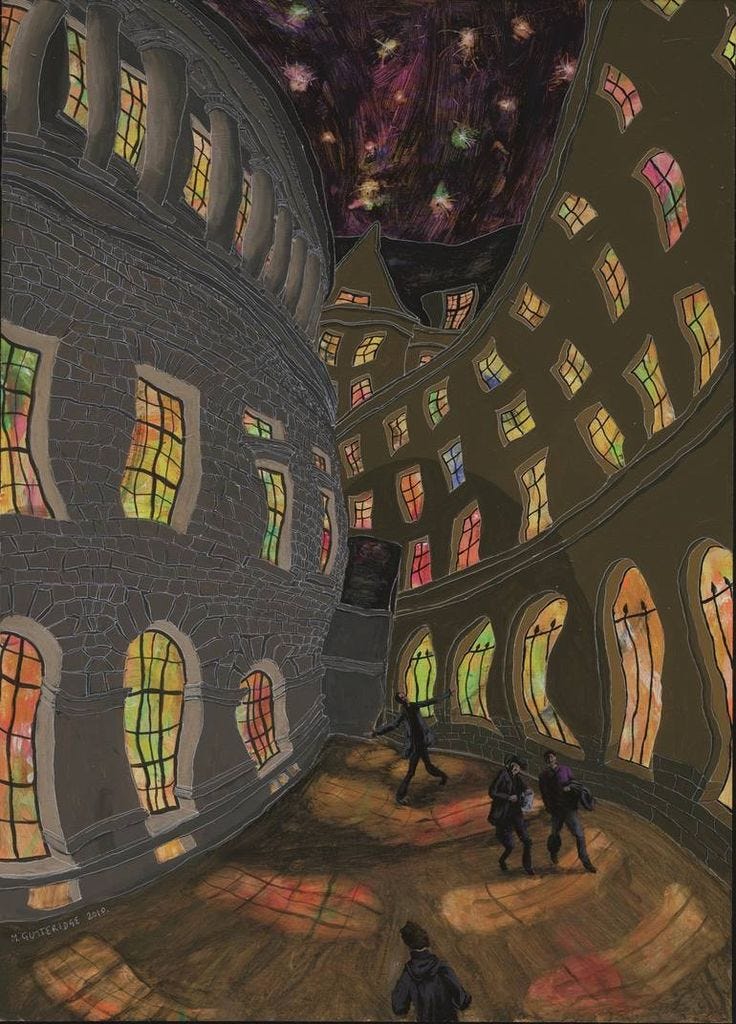
Important to note too is that Progressive Mormons uphold the integrity of an institution that is constantly lying to them. The Mormon church skews its origin story and ensuing history to craft a narrative that is as fictional as Santa Claus. Members are taught to revere a pedophile, Joseph Smith, and label anyone who acknowledges his crimes as “anti-Mormon”.
Progressive Mormons often talk about how the church encourages them to “build a personal relationship with Christ” without seeing how the church violates personal autonomy from cradle to grave. Informed consent doesn’t exist in a high demand religion such as Mormonism.
Progressive Mormonism the illusion of real progress. The church can make minor changes to its policies and language all day long but it will always be in the service of covering up its rot and maintaining its power. So do I think the church is getting better? No. They have a tireless PR team, mountains of wealth, a powerful legal firm, and an impressive system of controlling its members.
I want to stay a member of the church, but feel like a half-member in terms of testimony, and I’m okay with that! But I feel like there is a lot of pressure to either be a full member totally unshakeable or an exmo who is at least a little bit anti. I have trouble relating to anyone right now.
I typically feel very uncomfortable giving people advice. I have been on the receiving end of far too much inappropriate and unsolicited advice and though I’m learning to set and enforce boundaries, it’s a messy work in progress. It was interesting to read this question and notice the anxiety it spiked in me, a fear of playing the role of gratuitous sage in somebody else’s life. And bear with me while I make your very personal question all about me for a minute longer because I promise I’m going somewhere with this: with all my heart, I believe the most damaging aspect of my Mormon conditioning was the way I was taught to distrust myself and look to external sources for truth. Not only was it imperative to obey authority but I was taught to fear and disdain my own emotions, the body’s most sacred communication tool for understanding the Self. I still consider myself, five years later, at the beginning of a lifetime journey of de-centering the perspectives and opinions of others and learning to trust myself.
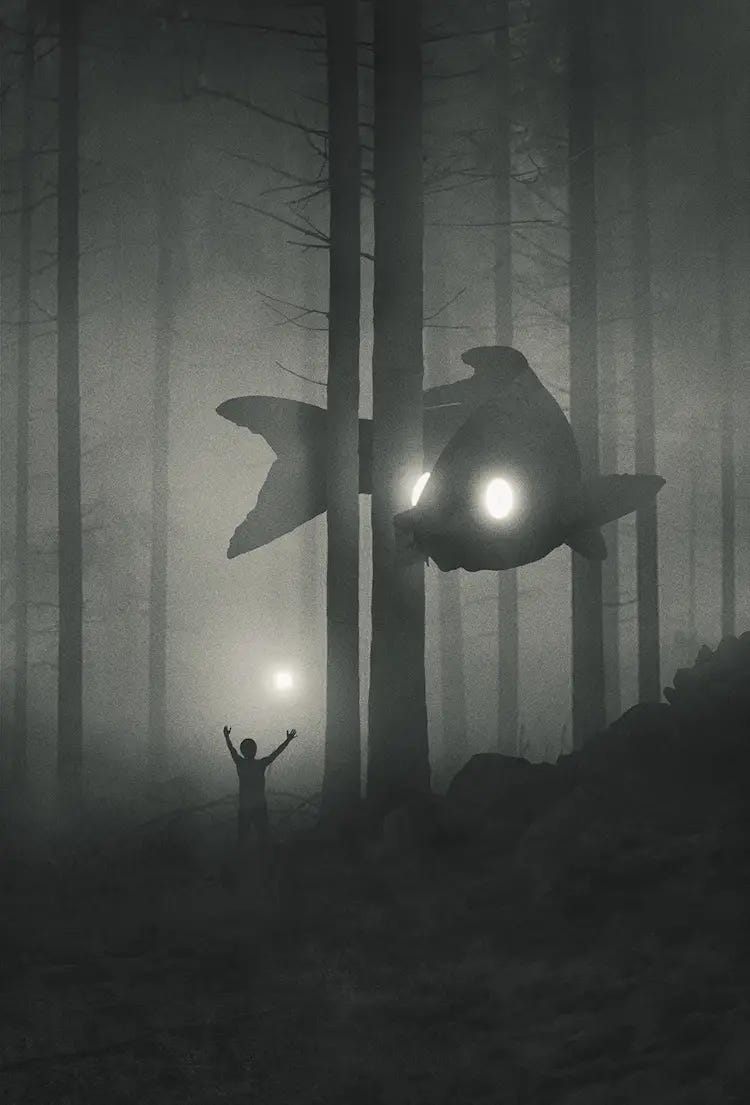
All that to say… I’m going to answer very honestly, with a perspective rooted entirely in my own lived experience and values. If anything I say doesn’t resonate with you, please discard it. You are the only one who knows what the best course of action is to take in your own life.
In your question, I see a person who has an earnest belief in the inherent goodness of the people and the faith system that shaped you. This pressure that you feel to either be “fully in” or “anti” is not a dilemma you’ve created on your own. The dichotomy is a manufactured pressure by church authorities who use polarizing language and scare tactics to convince you to give all of yourself to this belief system or risk becoming one of the worst things a person could ever be: “anti-Mormon”.
I wonder if you’ve found any solace in some progressive Mormon spaces who welcome and nurture those living in the paradigm of a “half-member”. You deserve a soft place to land, always, and if you do need community I hope those spaces or others give you the connection you need right now. Questioning a high demand religion is scary and lonely and you’ll fare all the better if you have people to lean on.
You mentioned that you have trouble relating to anyone right now and I want to let you know that if/when you feel comfortable examining things that you have been told are “anti”, there is actually an incredible community of ex-Mormons who would love to hear your story. There are so many people ready to welcome you.
There are facebook groups, meetup clubs, events, seminars and mental health resources available to you. Leaving a cult is hard, but there are pioneers who have walked before you and have created beautiful spaces for you. Some of these resources I’m aware of are Thrive Beyond Religion, the ex-Mormon subreddit, the Facebook group called “Faith Journey Meetups” (women + femmes only) and Lost & Found Club.
Best of luck on your journey!
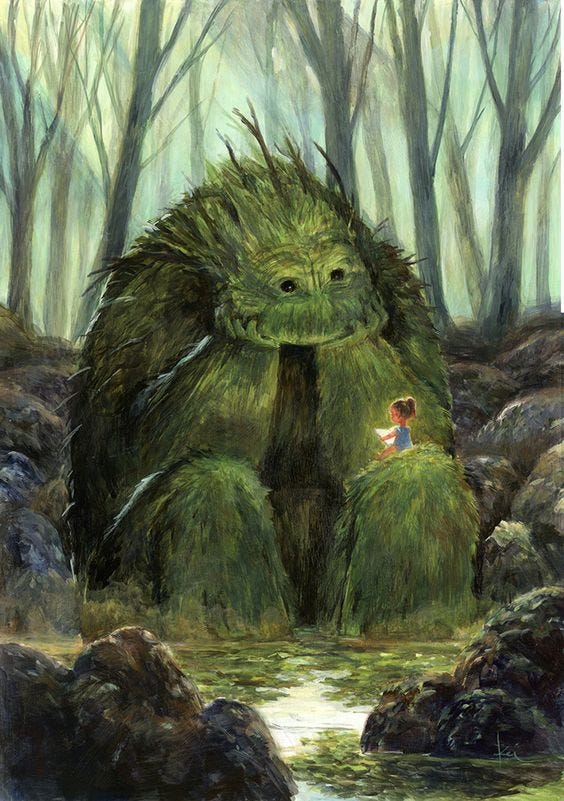
Able to stay friends with members?
Yes, but also no.
Keep reading with a 7-day free trial
Subscribe to kitty corner from hell to keep reading this post and get 7 days of free access to the full post archives.




